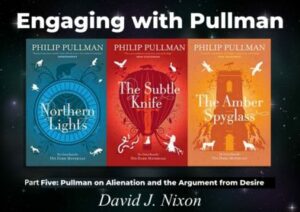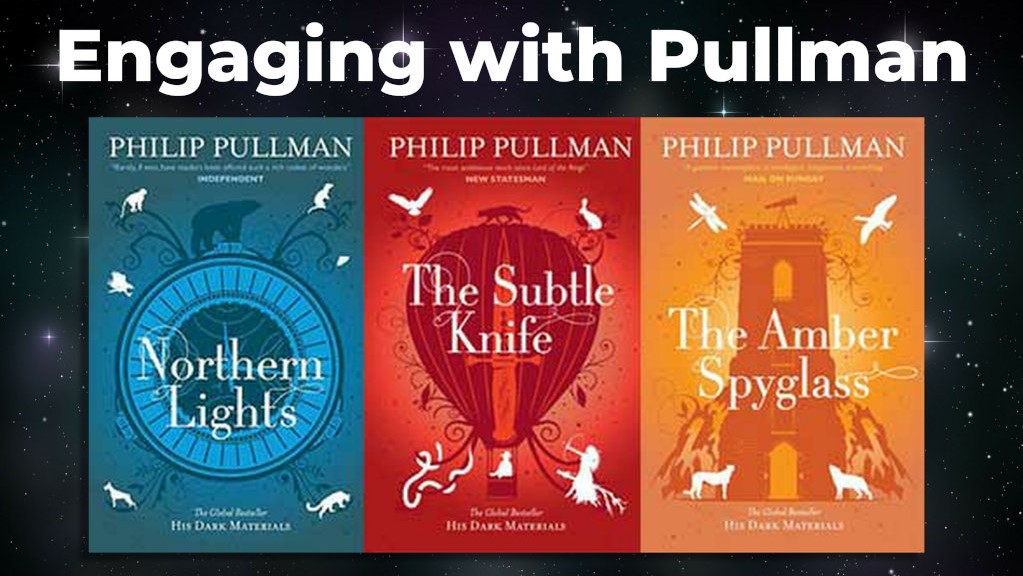Recently I was listening to a piece of music (“Jesu Joy Of Man’s Desiring”) composed by J.S. Bach and performed by The Celtic Women. It caused my heart to soar and my body to move along with the melodies. I wanted to reach out my hands as if to touch the music. It left me thinking for days: I  wish I could play the violin, so that I could experience playing that beautiful piece of music. I felt envious of the talented musicians who (after sacrificing much time and energy to master an instrument) where so much closer to getting inside and becoming one with the music than me. Suddenly the spectacle of people playing “air guitar” made sense – they want to become one with the music by imitating the actions necessary to create it. Let me assure you that these were not ordinary thoughts for me!
wish I could play the violin, so that I could experience playing that beautiful piece of music. I felt envious of the talented musicians who (after sacrificing much time and energy to master an instrument) where so much closer to getting inside and becoming one with the music than me. Suddenly the spectacle of people playing “air guitar” made sense – they want to become one with the music by imitating the actions necessary to create it. Let me assure you that these were not ordinary thoughts for me!
However, it got me thinking about the fact that there are many experiences of beauty in the world around us which draw out the desires of our hearts. We wish we could become one with the music; we wish we could bath in the light of a rainbow; we wish we could capture the beauty of the distant hills in a painting. However, these beauties remain elusive and our desires remain unfulfilled. Why is that?
It seems that the human experience is one marked by a sense of alienation. This is not a material alienation, like the one espoused in Marxism which makes the human problem about the alienation of the worker from the means of production. Nor is it merely a social alienation, marked by the rise of individualism and the decline of community life. Rather it is an existential alienation – we inhabit this world but feel shut out from some deeper, fuller reality. Our artists, poets and song writers are often the ones who give voice to this sense of alienation. Not long ago I heard on the radio the Kaiser Chiefs singing: “There’s a hole in my soul, that a galaxy could fit through…”. In their lyrics I could hear the echoes of Blaise Pascal reflecting centuries ago: “There is a God-shaped vacuum in the heart of each man which cannot be satisfied by any created thing but only by God the Creator” (In his work, “Pensées”).
I’m intrigued that Philip Pullman also feels this alienation. In the previous article in this series we considered his significant spiritual experience in 1969 when he felt a sudden sense of connection to the world – everything and everyone around him was suffused with a new sense of meaning. That probably prompted him to write in his short story “Lyra’s Oxford” (which fills the gap between His Dark Materials and The Book of Dust): “Everything has a meaning; if only we could read it”.
Pullman was even more candid about his sense of alienation and quest for finding meaningful connection in this interview:
“The kingdom of heaven promised us certain things: it promised us happiness and a sense of purpose and a sense of having a place in the universe, of having a role and a destiny that were noble and splendid; and so we were connected to things. We were not alienated. But now that, for me anyway, the King is dead, I find that I still need these things that heaven promised, and I’m not willing to live without them.”
Earlier in this series we have reflected on how Pullman is (consciously or unconsciously) the anti-C.S. Lewis storyteller. However, when it comes to this experience of alienation Pullman and Lewis are fellow travellers – although in different directions. Lewis was not just a great intellectual apologist, but a romantic artist. Both of those streams meet in his Argument From Desire, which I believe is one of his most important contributions for our work of apologetics today.
Let’s survey some of what Lewis wrote about this existential sense of alienation and his argument from desire.
In his famous sermon “The Weight of Glory”, Lewis articulated the haunting experience of alienation in this way:
“At present we are on the outside of the world, the wrong side of the door. We discern the freshness and purity of morning, but they do not make us fresh and pure. We cannot mingle with the splendours we see. But all the leaves of the New Testament are rustling with the rumour that it will not always be so. Some day, God willing, we shall get in.”
Earlier in the sermon he reflected on some dead ends in the quest for something to fulfil these longings and desires
“The books or the music in which we thought the beauty was located will betray us if we trust to them; it was not in them, it only came through them, and what came through them was longing. These things—the beauty, the memory of our own past—are good images of what we really desire; but if they are mistaken for the thing itself they turn into dumb idols, breaking the hearts of their worshipers. For they are not the thing itself; they are only the scent of a flower we have not found, the echo of a tune we have not heard, news from a country we have never yet visited…”
In the preface to his first novel “The Pilgrim’s Regress”, Lewis gave some extended reflections on the elusive nature of beauty and desire:
“There is a peculiar mystery about the object of this Desire… Thus if it comes to a child while he is looking at a far off hillside he at once thinks ‘if only I were there’; if it comes when he is remembering some event in the past, he thinks ‘if only I could go back to those days’. If it comes (a little later) while he is reading a ‘romantic’ tale or poem of ‘perilous seas and faerie lands forlorn’, he thinks he is wishing that such places really existed and that he could reach them. … Every one of these supposed objects for the Desire is inadequate to it. An easy experiment will show that by going to the far hillside you will get either nothing, or else a recurrence of the same desire which sent you thither. A rather more difficult, but still possible, study of your own memories, will prove that by returning to the past you could not find, as a possession, that ecstasy which some sudden reminder of the past now moves you to desire. Those remembered moments were either quite commonplace at the time (and owe all their enchantment to memory) or else were themselves moments of desiring”
The story is about the journey of a man (retracing Lewis’ rational and romantic journey to faith) searching for the Island of Desire, only to discover it is merely a reflection of the reality of Heaven.
Then in his final novel “Til We Have Faces”, Lewis put into the mouth of story’s heroine these words, which express the story of his own life:
“The sweetest thing in all my life has been the longing — to reach the Mountain, to find the place where all the beauty came from — my country, the place where I ought to have been born.
The story retells the myth of Cupid and Psyche, literally a story about the ecstatic union of the God of Love and the Soul of Man!
Finally, and perhaps most memorably, Lewis articulated the Argument From Desire in “Mere Christianity”:
“Creatures are not born with desires unless satisfaction for those desires exists. A baby feels hunger: well, there is such a thing as food. A duckling wants to swim: well, there is such a thing as water. Men feel sexual desire: well, there is such a thing as sex. If I find in myself a desire which no experience in this world can satisfy, the most probable explanation is that I was made for another world. If none of my earthly pleasures satisfy it, that does not prove that the universe is a fraud. Probably earthly pleasures were never meant to satisfy it, but only to arouse it, to suggest the real thing. If that is so, I must take care, on the one hand, never to despise, or be unthankful for, these earthly blessings, and on the other, never to mistake them for the something else of which they are only a kind of copy, or echo, or mirage. I must keep alive in myself the desire for my true country, which I shall not find until after death; I must never let it get snowed under or turned aside; I must make it the main object of life to press on to that other country and to help others do the same.”
I love how Lewis articulates the deepest cries of the human heart and helps us to see that they are not merely natural instincts, but a spiritual homing beacon for God our Creator.
The Bible tells us that the human race is truly suffering from alienation. We suffer alienation from God our Creator, alienation within ourselves (the gulf between our ideals and our actual selves), alienation from others around us (which identity politics is only making worse today), and alienation from creation (which no amount of environmental policy can overcome). The book of Romans tells us the root of this alienation:
“1:18 The wrath of God is being revealed from heaven against all the godlessness and wickedness of people, who suppress the truth by their wickedness, 19 since what may be known about God is plain to them, because God has made it plain to them. 20 For since the creation of the world God’s invisible qualities—his eternal power and divine nature—have been clearly seen, being understood from what has been made, so that people are without excuse. 21 For although they knew God, they neither glorified him as God nor gave thanks to him, but their thinking became futile and their foolish hearts were darkened… 25 They exchanged the truth about God for a lie, and worshipped and served created things rather than the Creator—who is forever praised. Amen.”
However, the gospel announces that God has not left us alone in this state of alienation. Just as the problem was caused by an exchange (our choosing the Creation over the Creator, the Gift over the Giver), so also the solution involved a great exchange: Jesus bearing the alienation and condemnation our sin deserves, so instead we might enjoy reconciliation with God and fullness of life in union with Him. Having the gulf of alienation bridged by the Cross of Jesus, the Christian can now sing: “This is my Father’s world, and to my listening ears, all nature sings and round me rings, the music of the spheres … This is my Father’s world, He shines in all that’s fair, in the rustling grass, I hear Him pass; He speaks to me everywhere”
That is why the gospel of Jesus – the King of Heaven – is the better story, than the Republic of Heaven that Pullman’s story is all about!
To reach people who are sensitive to this sense of alienation I don’t think we need more arguments, but instead we need more artists who can speak to these existential and aesthetic longings in the human soul – and like Lewis show that beauty is a signpost that points to the Beautiful One!
 David Nixon is a pastor who lives in Edinburgh with his wife and two small children.
David Nixon is a pastor who lives in Edinburgh with his wife and two small children.
This article is final part of a series, the previous articles are;
Part One: Why I’ll be watching ‘His Dark Materials’ and so should you.
Part Two: Philip Pullman and the power of stories.
Part Three: Pullman on God and The Church
Part Four: Pullman Dust and the signals of transcendence


